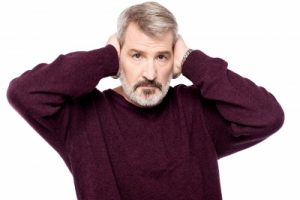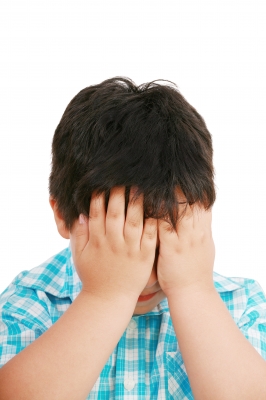Help Others More Effectively
Do you have someone in your family who just can’t seem to get their life together? You might have family members who won’t engage in healthy behaviors, are depressed, and are often addicts.
Do you find yourself worrying about them so much that it is taking away from your enjoyment of life? Do you feel compelled to help, yet frustrated, hopeless and helpless about the situation?
If so, you are not alone. I regularly talk with anxious caretakers who want me to help their loved ones. Some realize that they would be more effective as caretakers if
Read MoreFrom Trauma Drama to Ease in Relationships
I have a client who had 2 difficult housemates and didn’t feel like he could move. He called them entitled, and he felt like they regularly demanded far more from him than they were willing to do themselves. He often felt enraged, like a seething volcano about ready to erupt! He didn’t feel like he knew how to react to these kinds of stressful relationships!
He felt resentful because he was doing a large majority of the shared responsibilities. He was very concerned about saying something because he felt that, no matter how respectful he tried to be, they had a pattern of lashing out, being vindictive, or undermining his needs.
Read MoreWhat Makes Men Violent?
When I heard about the last mass shooting in Vegas, I felt physically ill. If the shooter was a Muslim or anything other than White, the media and politicians would label him as a terrorist.
If the shooter is White, they say that he has mental health issues.
But what has been the common denominator in 88 out of the last 91 shootings? It is that the shooter is a male.
While most men are not violent, most of the violence is committed by men. In fact, 90% of homicides are by men. And it is time that we as a country start to address the underlying causes before more lives are lost!
So what makes men violent?
Read MoreSix Steps to Handling Stressful Situations We Can’t Control
This year America has been in crisis mode! With Hurricane Harvey and then Irma, the fires in the West coast, and the threats of nuclear war, I found the news to be extremely stressful! Lucky for me, this onslaught of bad news came when I was able to handle it. Years ago, I would have probably gotten overwhelmed and freaked out, and it would have effected my ability to work and sleep.
When the bad news just keeps coming, what is the best way to get through it and stay strong?
Read More5 Steps to Recover From The 2016 Election
Many people I know, including myself, are struggling to grapple with the implications of this election. Not only has a racist xenophobe won the election, but Republicans will now have complete control over every branch of government. For those of us concerned about racial tolerance, the environment, and preserving the social programs we do have, there are no words to describe how worried we are. And for those of us concerned about climate change, there is a growing terror about the Republican’s denial that global warming is man made, and what they will do when they have all the power.
So how can we process the results of this election? How can get back to the things that are important to us? How can we make the best of this situation?
Read MoreDo You Have Election Stress Disorder?
Thanks to the negativity surrounding this year’s elections, election stress disorder is said by the American Psychological Association to be affecting 52% of Americans.
This diagnosis was originally coined in developing countries with more instability, and in 2016 is becoming a major epidemic in America.
What are the symptoms of Election Stress Disorder?
More people are feeling anxious and stressed. We are more prone to rage in driving, at work, and in relationships. As we take sides, we grow more divided and are unwilling to listen to the views of others. We become more contemptuous and less respectful. The stress of this election is putting real strain on relationships, both in the home and beyond.
What are the factors that are contributing to this?
We have one of the most contentious elections between the 2 major party presidential candidates in the last 50 years or more. They are also the 2 most unpopular candidates in modern day history. Both are using fear of the other, as a driving force to vote for them. Neither of them are trustworthy, and both are being investigated by the FBI or in Federal Court for corrupt practices. Neither of them inspire us to be our best, and very few people believe that they represent the views of the 99%.
 The stress of this election comes many factors: 1.) Many are voting out of fear of the other, and not for the change we want to see. 2.) Many of us are desperate for real change to help the 99%, and most of us don’t believe either candidate will make our lives better. 3.) There is tremendous fear of either a Trump or Clinton presidency and the ramifications of either taking office. 4.) The media excludes the voices of the 3rd party candidates, and perpetuates the idea that we only have 2 viable choices. 5.) The negativity and disparaging comments made by the campaigns and the media about others gives us subconscious permission to treat others similarly.
The stress of this election comes many factors: 1.) Many are voting out of fear of the other, and not for the change we want to see. 2.) Many of us are desperate for real change to help the 99%, and most of us don’t believe either candidate will make our lives better. 3.) There is tremendous fear of either a Trump or Clinton presidency and the ramifications of either taking office. 4.) The media excludes the voices of the 3rd party candidates, and perpetuates the idea that we only have 2 viable choices. 5.) The negativity and disparaging comments made by the campaigns and the media about others gives us subconscious permission to treat others similarly.
Our environment plays a very important role in how we treat each other. There are countries for example that are known to be more friendly than others, and much of it has to do with their media and how they treat each other. If we tolerate more rudeness, disrespect and put downs from our leaders and our media, we can expect to see that behavior grow. The people that are the most susceptible to these influences are people that have less control over their emotions. When the emotional circuits are triggered, the prefrontal cortex should kick in to help us to have control over our impulses. The prefrontal cortex however does not finish developing until about 25, and that can vary greatly, depending on your environment growing up, your mental health and your education. Because of the way the brain develops, and declines, children and the elderly are more susceptible to being emotionally triggered. Teachers are expressing a deep concern over the increase in bullying seen at schools, calling it “the Trump effect”. Stress also impacts our ability to use the prefrontal cortex, and thus our emotional inner child gets unleashed, and that can lead to more strife and tension in relationships.
Now that we know that the elections are stressing us out and negatively impacting our relationships, what should we do about it?
Read More








